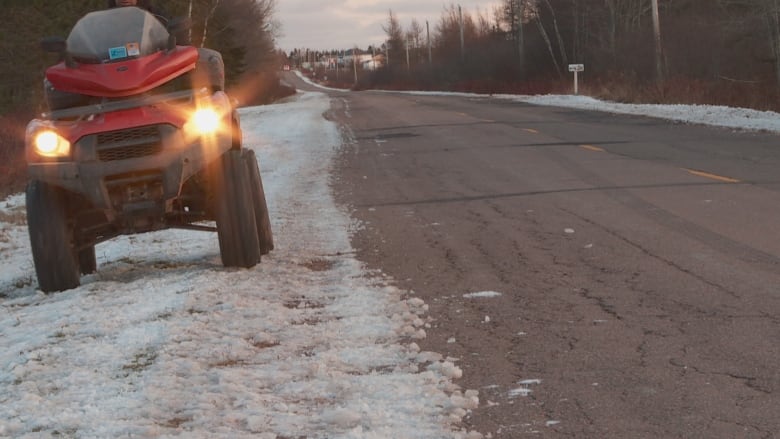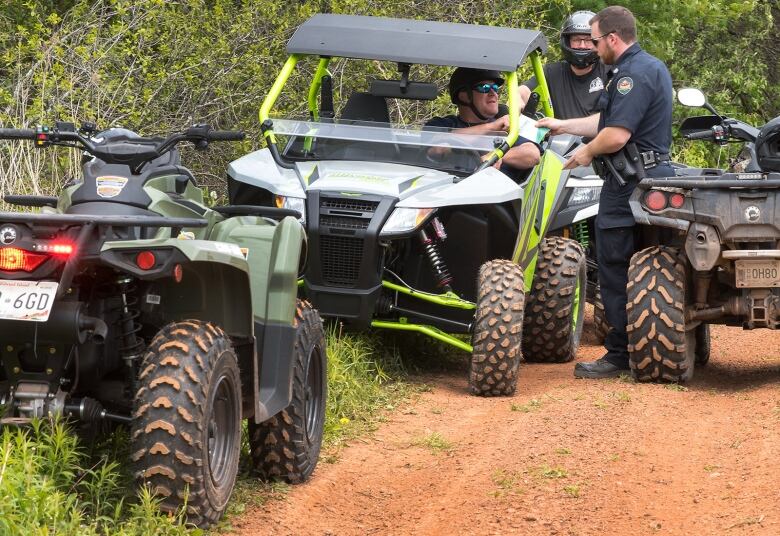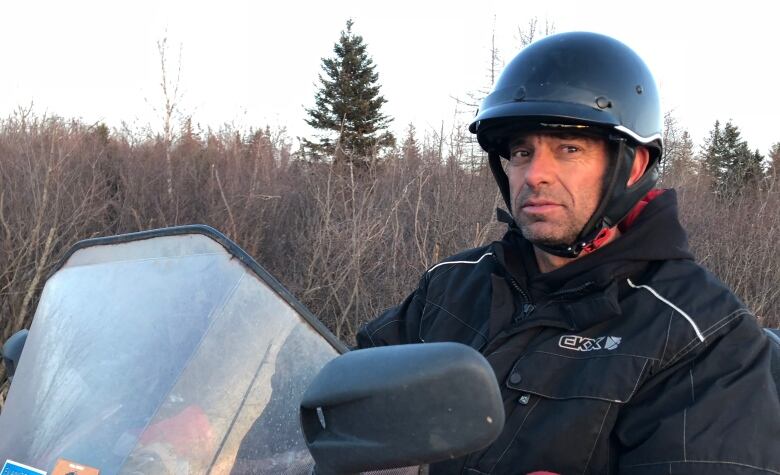P.E.I.'s ATV enforcement officers overwhelmed with illegal riding complaints
'We have all kinds of land for hikers, bikers, walkers ... But we don't for ATVs'

The mainenforcers of P.E.I.'s all-terrain vehiclelaws say they need help cracking down on the manyriders not following those laws.
In thelast six years, provincial conservation officers have laid 491 chargesfor various violations of the Off-Highway Vehicle Act.
But Wade MacKinnon, P.E.I.'s manager ofinvestigation and enforcement, saidthat represents"just a fraction" of the complaints that come in from the public on a daily basis.
"Thatnumber of charges isn't high based on the number of machines and the violations we're aware of," said MacKinnon, a conservation officer himself.
"There are a lot ofATVson private property....The machines aren't plated and registered. They're operating on the highway. There are minors operating without supervision of a guardian or parent. [They're not wearing]helmets. They're on the Confederation Trail orriding on the beaches and dunes."

So why aren't conservation officers laying more charges?
MacKinnon saidfor one, there are just seven conservation officers working acrossthe Island, all of them with other responsibilities beyondenforcing P.E.I.'sOff-Highway Vehicle Act. They enforce hunting, fishing, and farming rules as well.
Secondly, he saideven when officersdo spot ATVersriding illegally, catching and identifying them is difficult especially because many are riding without the required license plate. Officials say there are 2,000 ATVs registered on P.E.I, but estimate there are thousands unregistered.
ATVs relied on for transportation
"Officers tryto engage that machine, and the individual fails to stop. They're able to enter fields and the forest, and take off where we won't be able to follow.That happens daily....Enforcement's very difficult because this has been going on in some communities for a long, long time," MacKinnon said.
People are saying 'why should I bother registering and plating my bike, when if I leave my property, I'm breaking the law?- Peter Mellish, President, P.E.I. ATVFederation
JP Gallant, the headof the EvangelineATVClub,acknowledges that in rural areas like his, it can be hard to get riders on the right side of the law.
He points to the many teens under16,and too young to ride without adult supervision,who relyon their ATVsto get around.
Gallant saidthey inevitably ridealongroads and highways where they're not legally allowed.
"They'll go see their friends, they want to go from Mont Carmel to Egmont," said Gallant."That's eightkilometres of driving, and there's no denying they'll take the back roads and what not.And it's been like that for years and years basically."

Gallant saidhe does think, however, things are improving and more people are following the rules. "I think people should by all means follow the rules and get your bike registered and plated and have insurance."
Push forlegal ATVtrails
The president of P.E.I.'s ATV federation Peter Mellishagreesit's important for ATVusersto follow the laws, and he advocates more education and enforcement. He's also in favour of mandatory training.
But Mellishthinksthe first step to get more riders following the lawis to create more legal trails.
As it stands, riders technically have to ride on their own land or stick to a limited number of designated trails that private land owners have agreed to open to off-road vehicles.
Mellish saidit frustrates a lot of riders that theprovince's crown land is off limits.
"You know, we have all kinds of land for hikers, bikers, walkers, and joggers, and snowmobiles.But we don'tfor ATVs," said Mellish."So people are saying 'why should I bother registering and plating my bike, when if I leave my property, I'm breaking the law?'"

Mellish saidhis federation is working with the provincial government to potentially develop an Island-wide,off-road trail system.
In the meantime, MacKinnon said riders need to recognize the province's ATV rules are in place for a reason.
"Some of the riders don't believe they're an issue.They're not damaging anything, they're just running up and down the highway," he said."But running up and down the highway is a safety issue for everyone on the road. And when we're dealing with inexperienced ridersas young as 10 or 12 years old operating these machines alone, we need to get those riders off the road."
MacKinnonsaidhiring more conservation officers would allow for more "targeted enforcement" of the province'soff-road vehiclelaws.
He saidmembers of the public can also help, byreporting and identifying ATVersseen riding illegally.
"People know who they are.But they've often beenvery reluctant to give their names."












_(720p).jpg)


 OFFICIAL HD MUSIC VIDEO.jpg)
.jpg)



























































































